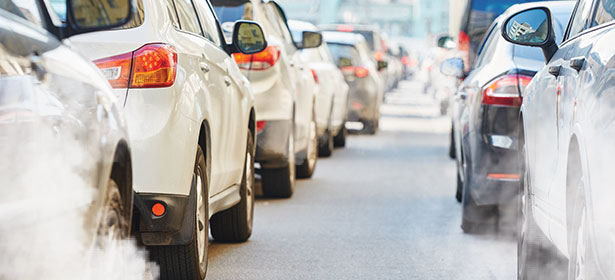
Following a compromise between the European Commission and Germany on the exemption of internal combustion engine cars powered by e-fuels, EU member states have agreed to prohibit the sale of new cars emitting CO2 by 2035.
The Council of the EU has adopted a regulation setting stricter CO2 emissions standards for new cars and vans. This aims to reduce emissions from road transport, which account for the largest share of emissions from transport. It also aims to encourage the automotive industry to shift towards zero-emissions.
The new rules establish goals of reducing emissions by 55 percent for new cars, and by 50 percent for new vans compared to 2021 levels, between 2030 and 2034. It also aims for a 100-percent reduction in CO2 emissions for both new cars and vans from 2035.
The proposal to phase out carbon emissions from cars and vans is part of the ‘Fit for 55’ package presented by the European Commission in July 2021. This aims to reduce the EU’s net greenhouse gas emissions by at least 55 percent by 2030 compared to 1990 levels, and to achieve climate neutrality by 2050.
“The new rules will bring opportunities for cutting-edge technologies and create the momentum for the industry to invest in a fossil-free future,” Swedish Minister for Climate and the Environment Romina Pourmokhtari said. Sweden now holds the Presidency of the Council of the EU.
A regulatory incentive for zero- and low-emission vehicles (ZLEV) will be in place from 2025 until the end of 2029, meaning that if a manufacturer meets certain benchmarks for the sales of zero- and low-emission vehicles, it will be rewarded with less strict CO2 targets. This benchmark is set at 25 percent for cars, and 17 percent for vans.
In 2026, the Commission will assess the progress made towards achieving its 100 percent emission reduction targets.
Germany had initially opposed the package, as the country’s strong auto industry hoped to continue to sell internal combustion engine cars from 2035, and e-fuels or climate-neutral fuels are not yet manufactured on large scale.
However, on Saturday the European Commission and Germany reached a deal over the future use of e-fuels in cars, allowing for internal combustion engine cars to be sold after 2035 if they fill up exclusively with CO2-neutral fuels.
SBTi approves Europcar Mobility Group’s emissions reduction targets
Velocys technology selected for Japanese e-fuels project
The ban on the sale of new vehicles emitting CO2 in the European Union by 2035 is expected to have a significant impact on car makers. This regulation will require car manufacturers to accelerate their transition towards zero-emission electric vehicles in order to comply with the new rules. Companies that do not meet the new requirements risk facing significant fines and penalties.
While this move towards zero-emission vehicles presents a challenge for the industry, it also offers an opportunity for car makers to invest in the development and production of electric and other low-carbon vehicles. This shift in the market towards more sustainable vehicles is expected to drive innovation in the industry and create new business opportunities. Additionally, as consumer demand for electric vehicles continues to grow, car manufacturers that invest in this transition are likely to benefit from increased sales and market share.